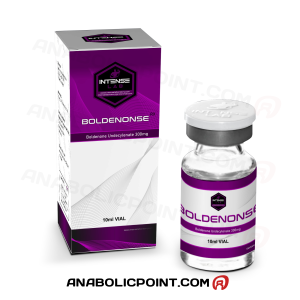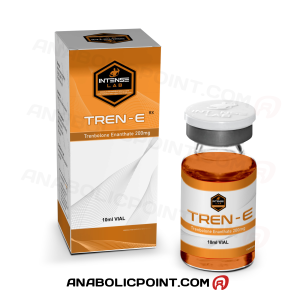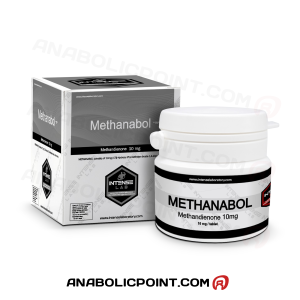Your basket is currently empty!
The Future of Steroid Testing in Esports: A Deep Dive into Challenges and Innovations
Esports, the competitive domain of video gaming, has grown into a billion-dollar industry, attracting millions of players and fans worldwide. With its rise, concerns about fair play and integrity have come into sharp focus, including the potential misuse of performance-enhancing substances (PES), particularly steroids. While steroids are traditionally associated with physical sports, their potential to enhance focus, reaction time, and mental endurance has brought them under scrutiny in esports.
This article explores the future of steroid testing in esports, diving into the current landscape, challenges, advancements, and implications of effective enforcement.
The Current Landscape of Steroid Use in Esports
Steroid use in esports often intersects with other performance-enhancing substances like stimulants (e.g., Adderall) and nootropics. While traditional steroids primarily enhance muscle strength and endurance, they may also benefit esports players by reducing fatigue and increasing mental clarity. The intense pressure to perform, coupled with the high stakes, creates an environment where players might seek any edge possible.
Why Steroid Testing is Critical in Esports
- Maintaining Fair Play: Esports tournaments depend on fair competition. Unchecked steroid use can create an uneven playing field.
- Safeguarding Player Health: Prolonged steroid use can have harmful side effects, including hormonal imbalances and psychological effects.
- Protecting the Industry’s Reputation: Public trust in esports is essential for its continued growth. Scandals related to substance abuse could damage this trust.
Challenges in Implementing Steroid Testing in Esports
1. Detecting Substance Use in a Digital Arena
Unlike physical sports, esports does not rely on physical exertion. This makes it harder to establish a baseline for detecting steroid use, as the effects may manifest in mental performance rather than physical markers.
2. Evolving Substances
The rapid development of designer steroids and nootropics outpaces testing technologies. Esports organizations often struggle to keep their testing protocols up to date with these advancements.
3. Cost Barriers
Comprehensive steroid testing is expensive. Smaller tournaments and organizations may lack the financial resources to implement rigorous testing protocols.
4. Player Privacy Concerns
Esports players, like all athletes, are entitled to privacy. The collection of biological samples for steroid testing can raise ethical questions and potential resistance from players and teams.
5. Lack of Regulation
Esports lacks a unified governing body, making it challenging to standardize steroid testing procedures across different games, regions, and tournaments.
Innovations Shaping the Future of Steroid Testing
Despite these challenges, advances in technology and increased awareness are paving the way for more effective steroid testing in esports.
1. AI and Machine Learning
Artificial intelligence (AI) can analyze player behaviors, identifying anomalies that may indicate substance use. For instance, if a player suddenly exhibits unnaturally consistent performance under pressure, AI algorithms could flag them for further investigation.
2. Blood and Saliva Testing
Newer, less invasive testing methods, such as saliva-based tests, are gaining traction. These tests are faster and less intrusive than traditional blood or urine tests, making them more feasible in esports settings.
3. Collaboration with Anti-Doping Agencies
Organizations like the World Anti-Doping Agency (WADA) are beginning to work with esports entities to adapt testing standards for the gaming industry. These collaborations aim to create esports-specific testing guidelines.
4. Blockchain for Transparency
Blockchain technology could enhance transparency in the testing process. By securely recording and verifying test results, blockchain ensures accountability while preserving player confidentiality.
5. Education and Awareness Campaigns
Preventive measures, including education on the risks of steroids and PES, are essential. Players, coaches, and fans must understand the long-term implications of substance abuse.
The Road Ahead: Integrating Testing into Esports Culture
The future of steroid testing in esports lies in making it a natural part of the competitive culture. This requires cooperation among stakeholders, including tournament organizers, players, and sponsors. Transparency, fairness, and education will be key to building trust and fostering compliance.
Common Questions About Steroid Testing in Esports
- Why is steroid testing important in esports?
Steroid testing ensures fair play, protects players’ health, and upholds the integrity of esports. - What substances are commonly abused in esports?
Steroids, stimulants like Adderall, and nootropics are the most commonly misused substances to enhance performance. - How are steroids detected in esports players?
Detection methods include blood, saliva, and urine tests, combined with behavioral analysis and AI-driven monitoring. - Are esports players tested as rigorously as traditional athletes?
Not yet. While top-tier tournaments may have testing protocols, many smaller events lack standardized procedures. - Can steroids improve gaming performance?
Yes. While not directly related to gaming mechanics, steroids can enhance focus, reduce fatigue, and improve reaction time. - What are the challenges of implementing steroid testing?
High costs, privacy concerns, lack of regulation, and the fast evolution of substances pose significant challenges. - What role does technology play in steroid testing?
AI, blockchain, and advanced testing kits are emerging as crucial tools to enhance detection and maintain transparency. - What organizations oversee anti-doping in esports?
Groups like WADA and the Esports Integrity Commission (ESIC) are collaborating to adapt anti-doping standards for esports. - What are the consequences for esports players caught using steroids?
Consequences can range from fines and suspensions to permanent bans from tournaments. - How can esports organizations prevent steroid use?
By adopting robust testing protocols, educating players, and fostering a culture of fair play, organizations can reduce substance abuse.
Final Thoughts: A Path to Integrity
As esports continues its meteoric rise, the importance of steroid testing cannot be overstated. Ensuring a level playing field is vital for the industry’s credibility, player health, and audience trust. While challenges remain, advances in technology and a growing commitment to integrity signal a promising future. The path ahead requires collaboration, innovation, and a shared vision for fair competition, ensuring esports remains a beacon of global entertainment and excellence.













